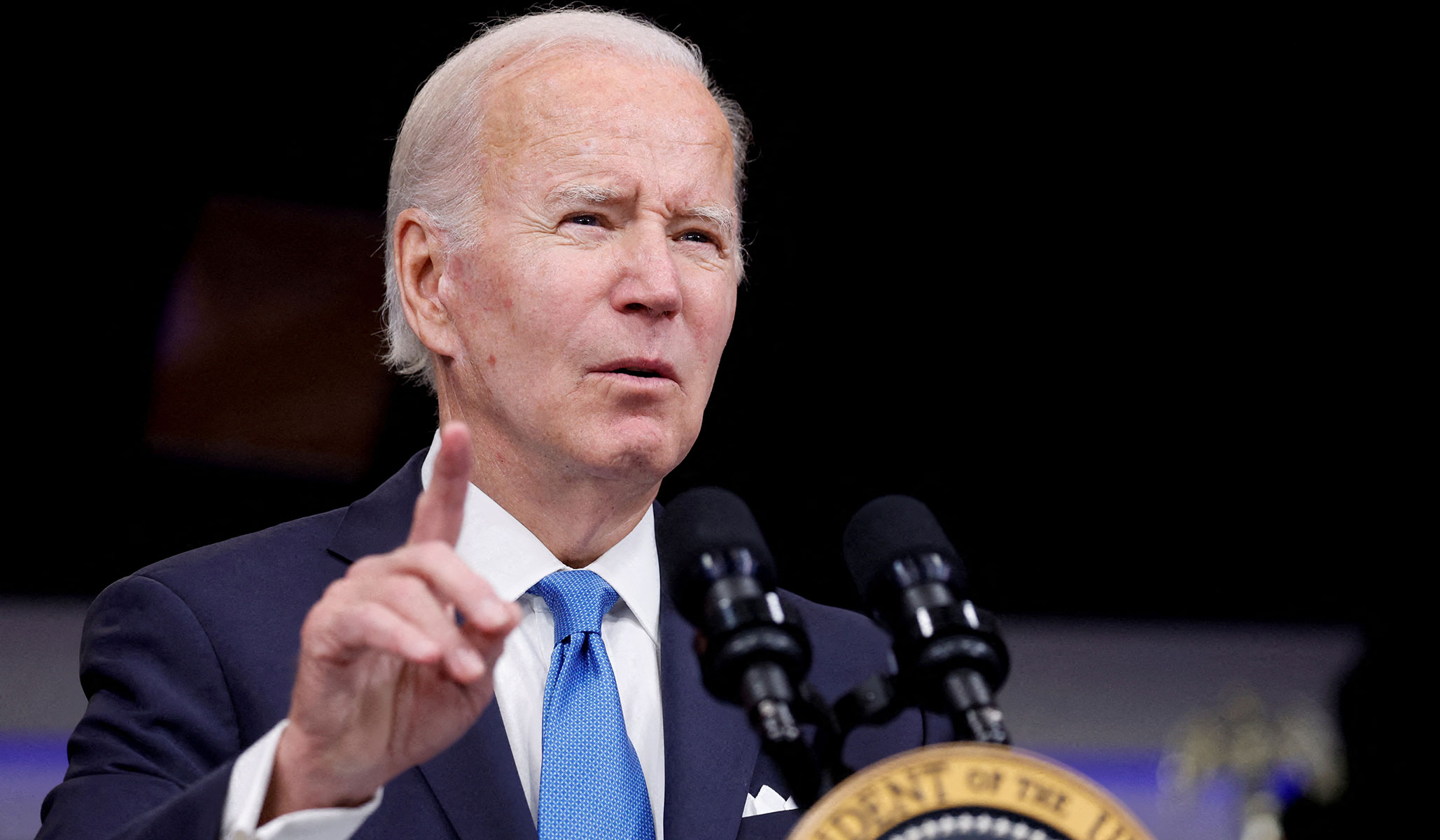Red State AGs Quietly Mount Stiff Resistance to Biden-Administration Overreach
During the Trump years, the press turned blue-state attorneys general into lions of the resistance.
Reporters churned out a constant drumbeat of articles detailing challenges to everything from the former president’s immigration ban to environmental regulations to the long-since-forgotten "death of the internet" net-neutrality fight.
Now, Republican state attorneys general — particularly those in smaller, traditionally low-profile states such as Tennessee, Alabama, and Montana — are filing a flurry of lawsuits and quietly laying the groundwork for future litigation that they hope will halt much of Biden's agenda on environmental regulations, ESG investing, and much else.
"If you look at the total number of lawsuits against the federal government, the current state AGs are way more litigious than any others in history," said Pete Bisbee, executive director of the Republican Attorneys General Association. "They're roughly twice as litigious as Democratic AGs under Trump, who were roughly twice as litigious as Republican AGs under Obama. The rate of litigation keeps accelerating at about twice the rate with each successive administration."
"I don't know where it stops," he added.
State-attorneys-general offices used to be sleepy places — but over the last three presidential administrations, state AGs on both sides of the aisle have engaged in a cycle of escalation that has seen even small offices transformed into cyclones of activity, hurling challenges at the federal government at a previously unseen pace.
Without much fanfare, Republican AGs are sticking with their Democratic counterparts when it comes to challenging the federal government — and are by some metrics overtaking them. They have thus far filed 101 lawsuits against the Biden administration, compared with just 51 suits brought by Democratic attorneys general against the Trump administration, according to data compiled by the Republican Attorneys General Association.
Democratic AGs were credited in the press with bringing nearly 150 lawsuits against the Trump administration, but many of those lawsuits were actually led by groups such as the ACLU and left-leaning law firms and corporations — and were simply joined by Democratic states.
“The Democratic AGs wrote a lot of letters; they didn't sue as much as we sue,” Bisbee said. “We actually take this stuff to court and stop policies from happening.”
Much of the acceleration is due to a change in the way state AG offices are viewed by ambitious law-school graduates from top schools.
"The amount of legal talent pouring into the AG offices is very impressive," said Paul Nolette, a Marquette University political scientist who closely tracks state-AG activity. "The idea that you'd have all these Harvard-law graduates, Federalist Society members, going to work for the Oklahoma AG's office would have been crazy years ago. But now that's what's happened."
While major players such as Texas have long attracted top legal talent, what’s changed is the breadth of offices those ambitious young lawyers are now joining, Nolette explained.
That dynamic has helped spread the burden of pushing back against federal overreach, limiting the damage that might otherwise be done by the dysfunction in the offices of Texas attorney general Ken Paxton, which National Review reported on in January. Since then, articles of impeachment have been filed against Paxton for alleged abuses of the public trust.
While Texas, which was renowned in the conservative legal world for its special-litigation unit, has struggled, Tennessee has stepped up to fill the void, creating its own strategic-litigation unit to centralize efforts to push back on federal overreach.
And given the Biden administration's aggressive efforts to circumvent Congress and impose its agenda, business is booming for the new group.
"You've seen instances where the president will say 'No, I can't do it,' and then he goes ahead and does it," Attorney General Skrmetti said in an interview with National Review. "So it has to be a deliberate abandonment of separation-of-powers principles. The idea is this is the best thing that can happen so we're going to make it happen regardless of the process to get there."
"They really believe that technocratic government by enlightened bureaucrats is the best way to govern the country," he added. "That's not what the constitution allows. That certainly requires a strong response from the AGs."
Under Skrmetti, Tennessee has quietly led the charge against the Biden administration’s attempts to meddle in consumer behavior, filing the all-important comment letters that will likely serve as the basis of a future legal challenge to Biden-administration rules regulating home appliances such as gas stoves and dishwashers.
The stakes may seem trivial at first glance, but if the Biden administration is able to circumvent Congress and impose rules governing the dishwashers used in American homes, the fundamental structure of American government will be further undermined, Skrmetti argues.
"Appliances are an example of the federal government trying to micromanage the way people live their lives without having the mandate of Congress," Skrmetti said. "If bureaucracy takes away decisions from elected officials — and as the executive branch encroaches on the prerogatives of Congress — we lose the republic we've been gifted. Some people think we're just fighting over what kind of stove you can have, but it's just one skirmish in the overall battle of who makes decisions about what Americans have the right to do."
Tennessee’s proactive approach to blocking the Biden administration’s environmental agenda is perhaps the best example of the total transformation in the way state AG offices operate that’s taken place over the last decade.
“What's really changed is that these offices are well-oiled machines,” Nolette said. “AGs used to be reactive to rules, but now they're ready to go on Day One.”
|












No comments: